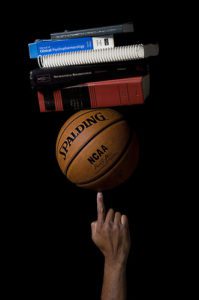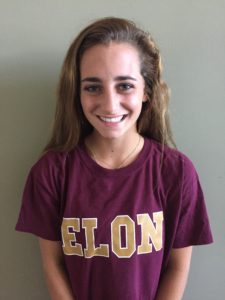The NEW NCAA academic requirements by College Hunt
Posted by SportsForce in College, High School, Prep, Q & A, Recruiting, Tips & Advice, tags: academic requirements, athletic scholarship, Bethany College, college admission, college commitment, College Hunt, college recruiting, college selection process, core course, eligibility center, NCAA, ncaa division, NCAA division I, ncaa division II, ncaa division III, NCAA requirements, recruiting processOur partner Matt Hunt from College Hunt helps students successfully navigate the college selection process. In his latest blog post he explains the new NCAA academic requirements for Division 1, 2, and 3.

Planning on, or dreaming to one day participate in NCAA Athletics? Before you step onto the field or court you must first complete the required academics to be eligible for participation. Beginning in August 2016 the NCAA is increasing the minimum academic requirements student-athletes must meet to participate in Division 1 and 2 athletics. While these changes may seem minor, it’s important to remember all students planning on playing Division 1 or 2 athletics must meet these requirements or they will be academically ineligible.
Before we dive into the specific academic requirements we should first understand the purpose of the NCAA Eligibility Center. Think of them as the checks and balances for coaches as well as colleges/universities on whether or not the student has met the established requirements. Keep in mind, they are separate from admissions; a student still applies to individual schools during senior year. A common misconception from students is they believe if they’ve met the NCAA Eligibility requirements they are good to go, but in reality, they have only met the standard to play.
What is a Core Course? The NCAA Eligibility Center requires students earn a specific number of Core Courses by a certain point in high school as part of meeting eligibility. Now, there are some differences in the amount and timeline per level (D1, 2, & 3), but the definition of a Core Course remains the same. A Core Course is one that counts towards graduation in the core curriculum: English, Math, Natural or Physical Science, Social Science and World Language or Comparative Religion. Students must earn at least a D or higher in these courses. I know what you’re thinking, the NCAA allows D’s? Correct, but remember four-year colleges and universities do not.
The NCAA Eligibility Center has clearly defined specific academic requirements for Division 1, 2, and 3. Here is a breakdown of those requirements for each Division….
Division 1: minimum 2.3 GPA, increase on the SAT & ACT sliding scale, 10 of the 16 core courses must be met before the start of senior year.
Division 2: minimum 2.0 GPA, combined 820 on SAT or sum 68 on ACT, & 16 core courses completed.
Division 3: the college or university, not NCAA Eligibility Center, determines eligibility for admission, financial aid, practice and competition.
What happens if a student fails to meet the academic eligibility requirements? It will first depend on which division they’re being recruited by and how they’ve missed the requirement. The results may range from delayed opportunity to play, having to sit for an extended time or worse- being ruled academically ineligible.
Remember, the number one focus should be earning successful grades throughout high school to meet the requirements to play and more importantly too give yourself the opportunity to earn admissions into the college or university you’re desiring to attend.
For more information about the college selection process check out his blog!





